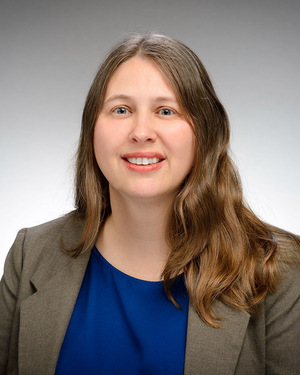
- University of Notre Dame
- Associate Professor of Theology
- Teaching Lab Fellow (2023-2024)
- "Rhythms of Faith: Liturgy, Music, and Creativity"
Kimberly Hope Belcher is Associate Professor of Theology at the University of Notre Dame, in Liturgical Studies. She and Dr. J. J. Wright are developing "Rhythms of Faith: Liturgy, Music, and Creativity" at the NDIAS Teaching Lab. In this project-based course, students will experience the globally diverse and ancient history of musical theology on the Psalms, creating renewed theology by writing lyrics and music of their own.
In her research, Belcher uses phenomenology, postcolonial thought, and ritual theory to study Christian worship. She has published two books: Efficacious Engagement: Sacramental Participation in the Trinitiarian Mystery (Liturgical Press, 2011) and Eucharist and Receptive Ecumenism: From Thanksgiving to Communion (Cambridge University Press, 2020). She has published more than fifteen peer-reviewed articles and book chapters, including “Recording the Re-Membering Work of the People: A Catholic-Jewish Comparative Theology of the Body and Liturgical Memory,” with Rabbi Sonja K. Pilz and Fr. Kevin Grove, C.S.C. (Studia Liturgica, 2021). Her current research is on the role ritual should play in recovery from social and ecological crisis in pluralistic North America.
Belcher is currently the Vice President and President-Elect of the North American Academy of Liturgy, as well as holding leadership roles in the Catholic Theological Society of America and Societas Liturgica. Her current research has been funded by the Kilian McDonnell Fellowship of the Collegeville Institute (Collegeville, MN), the Kellogg Institute for International Studies, and the Institute for Scholarship in the Liberal Arts. She held the Tisch Family Assistant Chair of Theology from 2016-2019. She serves on the Vital Worship Grants Board of the Calvin Institute for Christian Worship and on three U.S. ecumenical dialogues: the Methodist-Catholic, Episcopal-Catholic, and exploratory Pentecostal-Catholic dialogues.